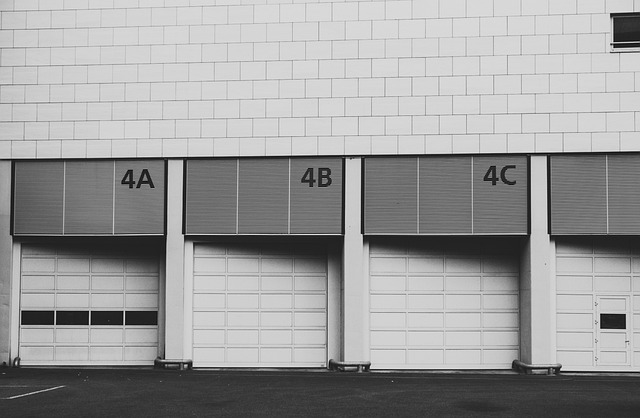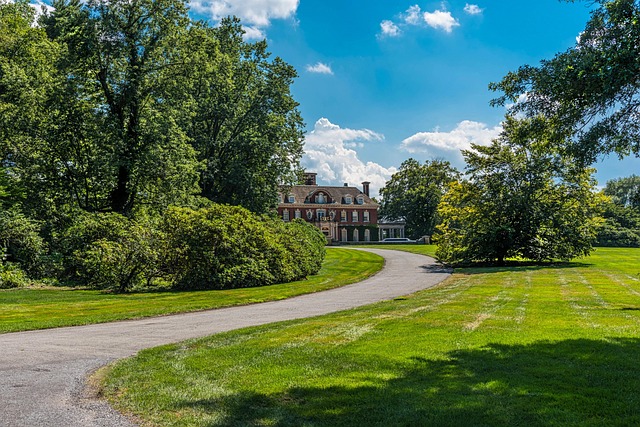Choosing a driveway material impacts durability, cost, and home value. Asphalt is affordable but cracks easily in cold climates, while concrete offers superior strength and longevity despite higher upfront costs. Pavers provide versatility and customizable design with minimal maintenance. For optimal results, consider professional driveway paving, repair, or resurfacing for asphalt, concrete, or paver installations, emphasizing durable driveways that enhance residential property values through strategic driveway design.
Looking for a reliable and attractive driveway that enhances your property’s value? Expert craftsmanship is key to achieving durability and aesthetics. This comprehensive guide explores the best driveway materials—asphalt, concrete, and pavers—and their pros & cons. We delve into the art of custom installation, emphasizing site preparation and strong foundations. Learn about maintenance strategies, from regular upkeep to repairs, ensuring your driveway stays in top form. Discover how custom design can transform your outdoor space, blending functionality with stunning visual appeal.
- Choosing the Right Driveway Material for Longevity
- – Asphalt driveway pros and cons
- – Concrete driveway benefits and drawbacks
- – Paver driveway advantages and versatility
Choosing the Right Driveway Material for Longevity

When it comes to choosing the right material for your driveway, longevity should be at the forefront of your decision. Asphaltenous materials like asphalt and pavers offer a cost-effective option known for their flexibility and ease of repair, making them popular choices for residential driveways. However, for those seeking durability and a more permanent solution, concrete is an excellent alternative despite its initial higher cost.
Consider the wear and tear your driveway will endure from vehicles, weather conditions, and foot traffic. A professionally installed custom driveway with durable materials like concrete can last decades with proper care and occasional resurfacing or repair. Compare this to asphalt, which may require replacement after 15-20 years, or pavers, which can develop cracks over time. With the right driveway design and installation, you’ll invest in a feature that enhances your home’s value and stands the test of time.
– Asphalt driveway pros and cons

Asphalt driveways have long been a popular choice for homeowners due to their affordability and ease of installation. They offer a smooth surface that requires minimal maintenance, making them an attractive option for those seeking a quick and cost-effective solution. However, asphalt is susceptible to cracks and degradation over time, especially in colder climates, which can lead to costly repairs and an unsightly appearance.
On the other hand, concrete driveways provide a more durable and long-lasting alternative. While they may have a higher upfront cost, their strength and resistance to extreme temperatures make them a reliable option. Concrete allows for intricate designs and custom installations, offering homeowners a unique and aesthetically pleasing driveway. When compared to asphalt or paver driveways, concrete also requires less frequent resurfacing or repair, ensuring a more sustainable investment for residential properties.
– Concrete driveway benefits and drawbacks

Concrete driveways offer a durable and cost-effective option for residential properties, making them a popular choice among homeowners looking for long-lasting outdoor solutions. This material is known for its strength and resistance to heavy traffic, making it ideal for driving and parking areas. Moreover, concrete can be easily maintained and cleaned, ensuring your driveway stays in pristine condition over the years. With proper care, a concrete driveway can last for decades, providing a solid investment for any home.
However, concrete also has its drawbacks. It is prone to cracks, especially when installed improperly or subjected to extreme temperature changes. Additionally, concrete driveways may not be as visually appealing as other options, such as paver driveways, which offer more design flexibility and customization. Unlike asphalt, concrete is less flexible and can become damaged if not properly sealed, requiring periodic repair and resurfacing to maintain its integrity. Despite these considerations, many professionals recommend concrete for durable driveway paving due to its strength and affordability.
– Paver driveway advantages and versatility

Paver driveways offer a multitude of advantages and have proven to be incredibly versatile when it comes to residential driveway installations. One of their key strengths lies in durability; pavers are designed to withstand heavy traffic and extreme weather conditions, ensuring your driveway remains in pristine condition for years to come. This longevity is a significant factor for homeowners looking for long-term solutions, as it minimizes the need for frequent repairs or replacements.
The versatility of paver driveways is equally impressive. These pavers can be arranged in various patterns and designs, allowing for truly custom installations that reflect individual style. Whether you prefer a traditional, elegant look or a more modern, unique design, paver driveways can accommodate these preferences. Moreover, they can be easily repaired or replaced if damaged, making them a cost-effective option in the long run. This flexibility ensures that your driveway not only serves its practical purpose but also enhances the overall aesthetics of your property.
When it comes to reliable and durable driveways, choosing the right material is key. Asphalt, concrete, or pavers each offer unique benefits that cater to different needs and preferences. By understanding the pros and cons of each option, homeowners can make informed decisions for their residential driveway installation or repair projects. Professional driveway paving experts can guide you in creating a stunning and long-lasting driveway design that enhances your property’s value, while also ensuring it withstands the test of time.
